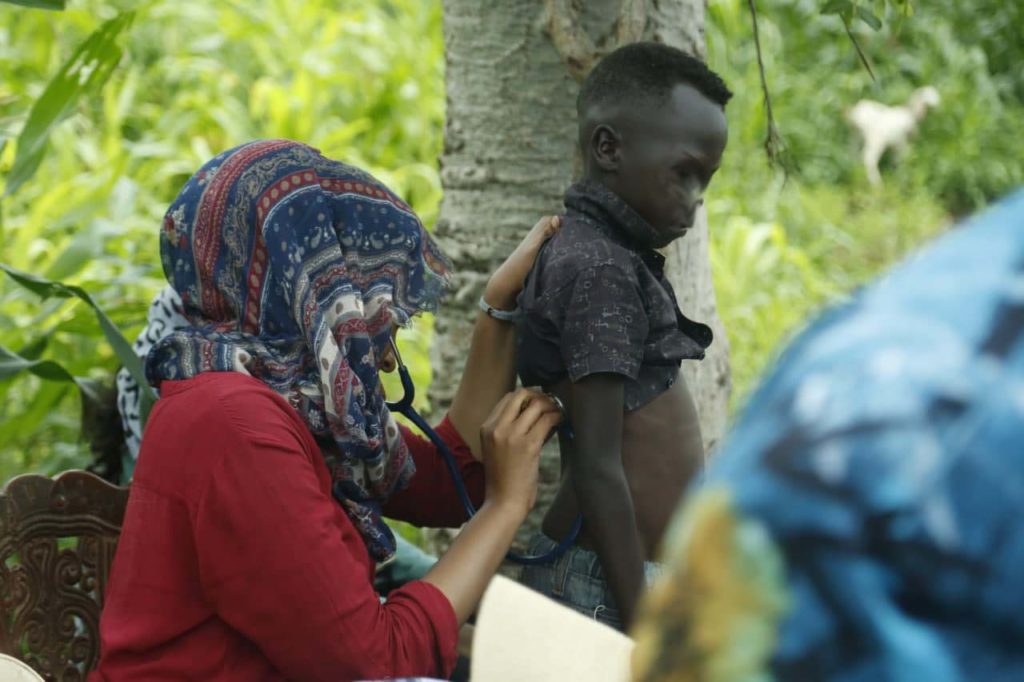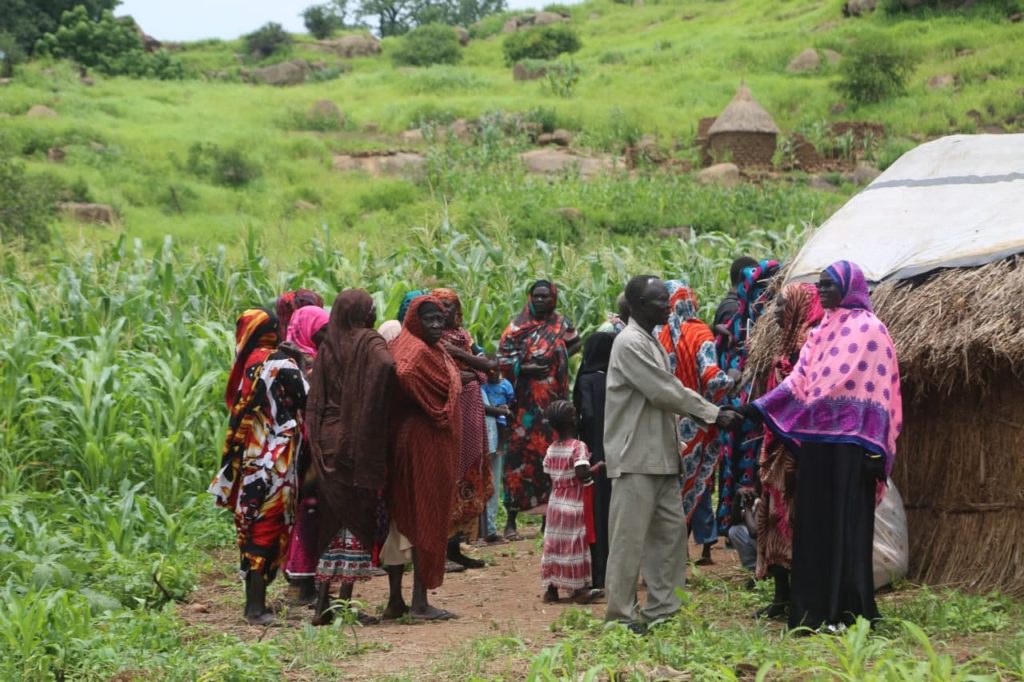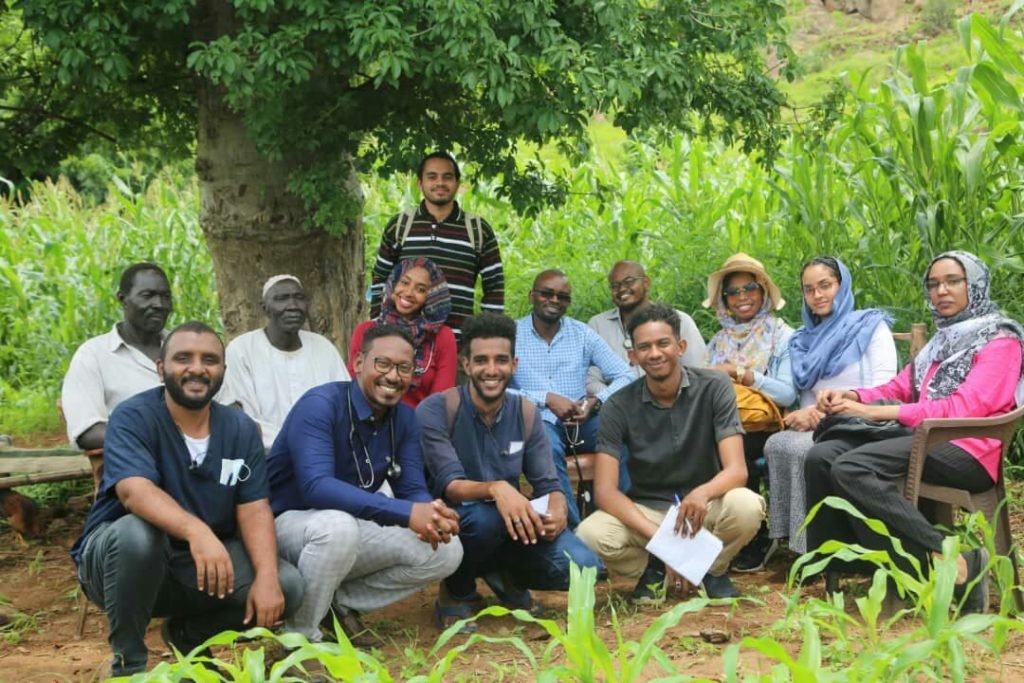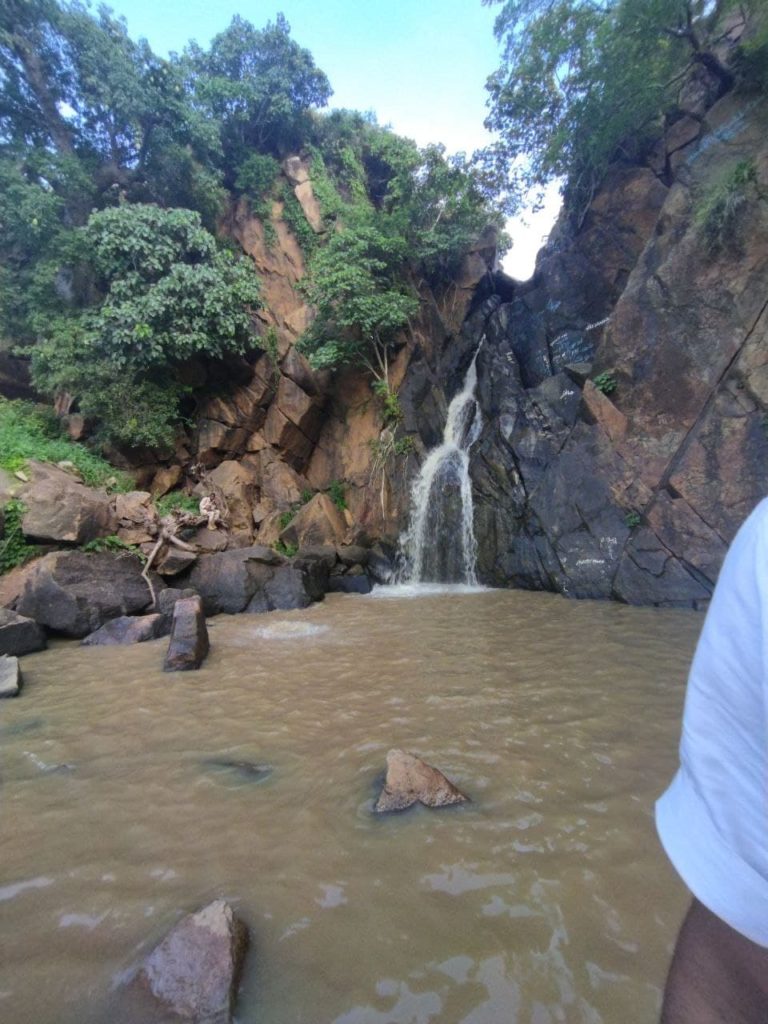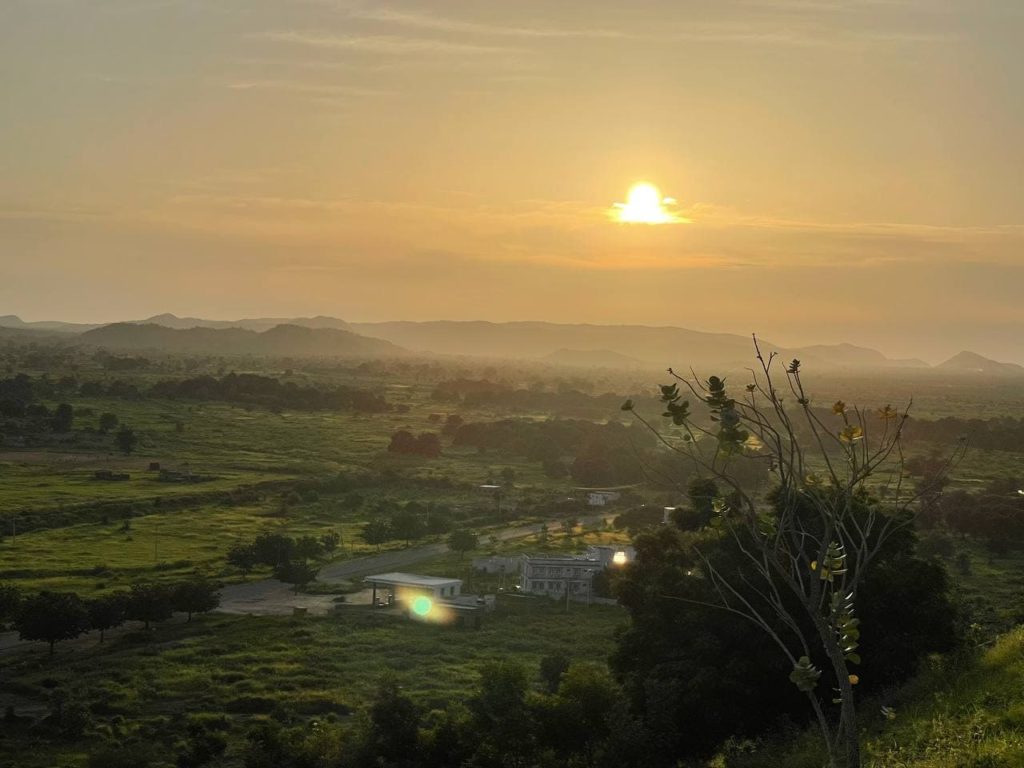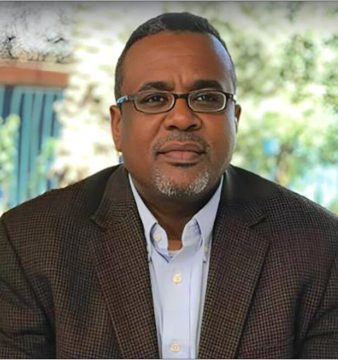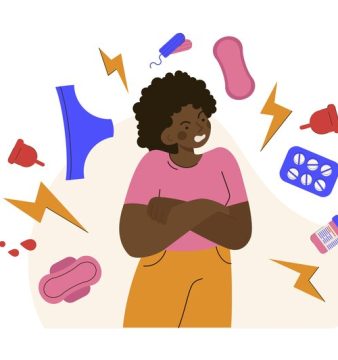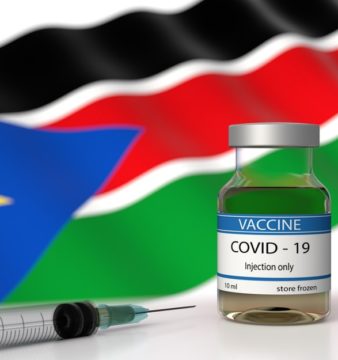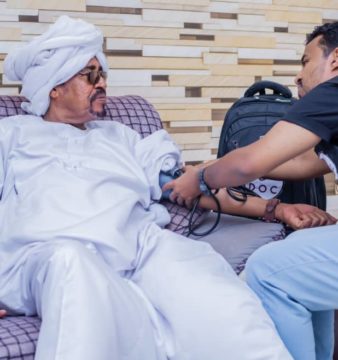A Medical Mission to the Nuba Mountains
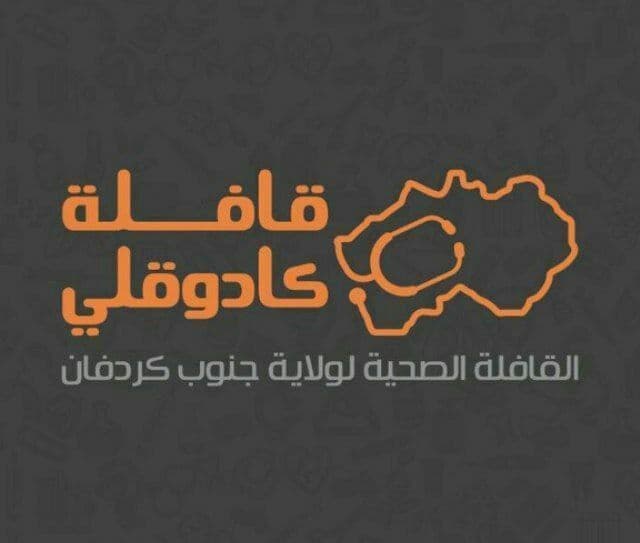
It was on 2 April 2021 when I first heard about the medical mission heading to the capital city of South Kordofan State, Kadugli, also known as A’aroos Al Jabal or the bride of the mountains, which would take place from 16 to 23 August 2021. It is home to the troubled yet beautiful Nuba Mountains.
The Nuba Mountains has been an area of years-long conflict between the Tagoi and Hawazma tribes, and their allies over natural resources and political authority. The first war took place from 1987 to 2005, while the second war took place most recently in July of 2011, and is still technically ongoing, but a ceasefire has been in place for the past three years. The bombardments and attacks on civilian populations persisted throughout these periods, driving hundreds of thousands of people from their homes. Hundred thousands of the indigenous Nuba people lost their lives to the war.
I’ve always been intrigued by the Nuba Mountains especially after watching Hajooj Kuka’s film aKasha around two years ago. The award-winning film is an offbeat, romantic comedy set in a time of civil war that explores life and ideology in rebel-held areas in the Nuba Mountains of Sudan. It was this documentary along with Beats of the Antonov, also directed by Kuka and set in the Nuba Mountains, that put Sudan’s name on the screen of world cinema. After watching aKasha, the actors themselves showed up on stage and spoke about the Nuba Mountains, and invited us all to come visit one day, reassuring us things had gotten much calmer and safer.
The idea of visiting the Nuba Mountains reoccurred to me once again during a spontaneous chat with a colleague who originates from there. The last time she had visited was in 2011 before the war, yet she spoke about the Nuba Mountains with so much love and yearning, inviting me to visit whenever I could.

On arrival, we were divided into five groups. Each day, each group would go to a different village, to reach the maximum number of people and villages . On the first day, a few of us parted from the main group to conduct a few lectures in Dalanj University, which is originally located in El Obeid, but recently a new branch was established in Kadugli, still a long way from being complete. The students told stories of fleeing from home years ago, how they wish they could have stayed; however, despite the unstable situation, it was heart-warming to see these students still fighting for a bright future.
What was most captivating about our visit to the university was the graffiti on the walls just outside the university premises showing the people’s objection to the civil war and tribalism. It really hit me how strong and expressive art can be, especially when it comes to conflict and war.
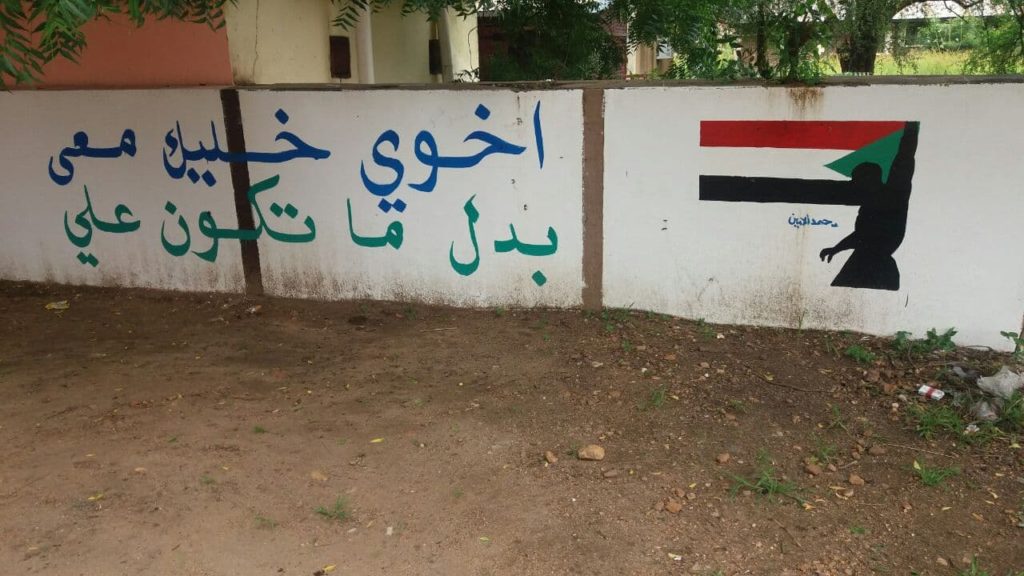
As we entered the villages, we noticed women of all ages crouching down farming, collecting harvest products, feeding poultry, and tending to their gardens; therefore, we knew a lot of the patients we’d be seeing would be females suffering from back and flank pain. It was evident that the men did all the military work while the women were left to do the farming. Many of the villages had absolutely no infrastructure, maybe just a school of three or four classrooms, or a training centre. We had to improvise by turning school classrooms/training centres into clinics (one for males and one for females), and a lab, and pharmacy.
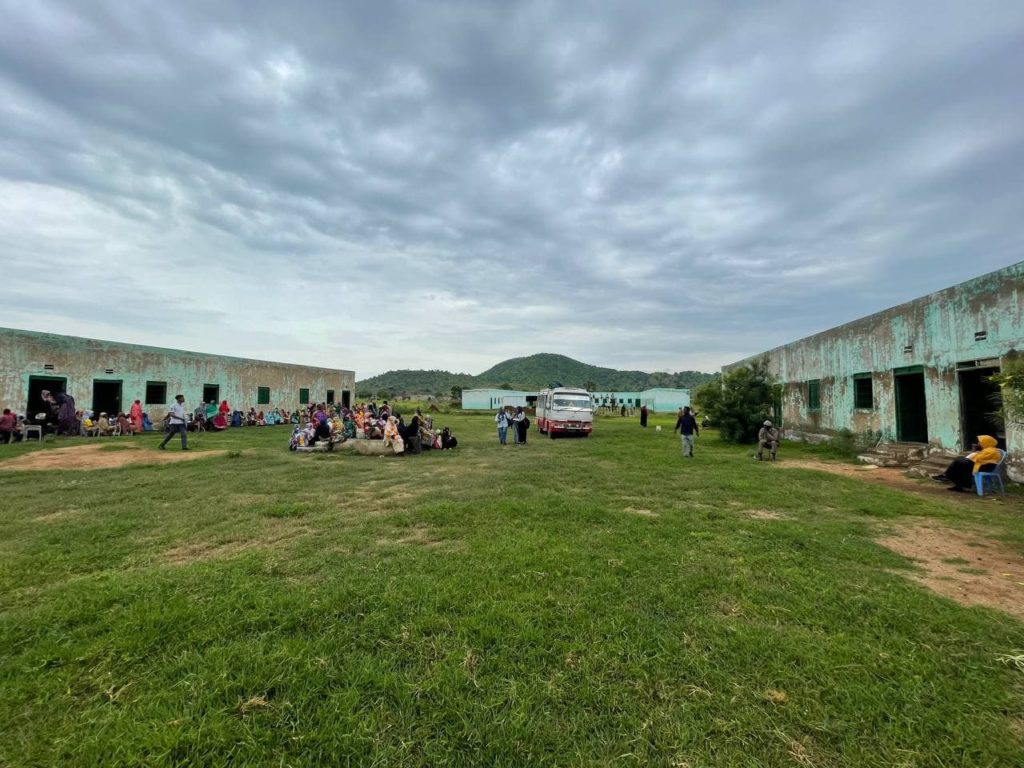
As part of history taking in medicine, knowing the age of the patient is crucial; however, none of the elderly patients we saw knew their exact age. Sadly, these villages are completely cut off from the rest of the world. Kadugli is a 12-hour ride from Khartoum and when entering South Kordofan, the signs of civilisation and globalisation drop to almost zero. Going deeper into the villages, which is approximately another two-hour ride, only huts, cows and vast fields can be seen. Therefore, one cannot expect them to know their age, or hold documents such as birth certificates, passports, or any ID. Most female patients we met would give birth at home with the help of their grandmas, so asking about prenatal, antenatal, and postnatal follow-up care, as with the patients in Khartoum, wasn’t applicable in Kadugli. Furthermore, asking women if they took oral contraceptive pills or used any sort of contraception was like an insult, and they would shake their heads in disapproval. The only means by which they went about family planning was by breastfeeding their children until two years of age, hence the difference in ages between all siblings was an average of two-three years. What was additionally astonishing was how mothers reacted so bluntly to the news of a new baby arriving. I recall a woman whom I had sent to get an abdominal ultrasound. Expectedly, the results came out saying, ‘A single viable foetus – cephalic in position.’ When I joyfully told her the news, she just nodded her head, fixed her toob and walked off with her four kids running behind her trying to catch up with her fast walking pace. Quite interesting I thought, and summoned to the next patient to come in and take a seat.
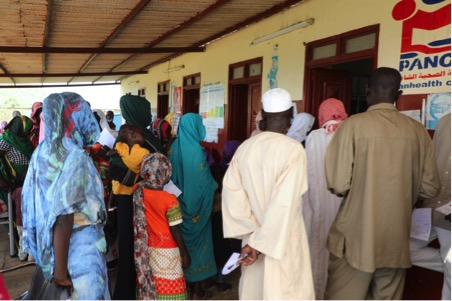
A touching story was about a 22-year-old female patient who seemed to be suffering from Rheumatic Fever. Tears were streaming down her face as she spoke because her severe joint problems had led her to drop out of both school and work. She also needed monthly thyroid tests but couldn’t’ afford it as her elder siblings were married with their own responsibilities and her father had retired. A referral card was made to Soba University Hospital, in which both the hospital and Patients Support Organisation would try their best to fund the expenses.
Another case was a 16-year-old girl who came with very teary eyes. She was scared and concerned, as she had been vomiting for days. It turned out to just be Hepatitis A, a self-limiting illness. She was so scared and concerned about her symptoms that it reoccurred to me the importance of brochures, media, health awareness programmes, and how we should never underestimate the power of community participation, and primary health care centres. With a couple of reassuring words, she wiped her tears away and promised to follow the management steps.
There were also many misconceptions amongst a lot of the patients. For example one patient thought washing her eyes with soap made her see better, and another mother had treated her 8-month-old baby girl who had sustained severe burns on her legs by putting ash over the wound. The wound warranted urgent life saving care as it was largely infected. Poor practices from the lack of knowledge and cultural illiteracy were regrettably being passed on. Again, it brought up the importance of establishing health units, and primary health care services, which could ultimately save lives in Kadugli.
Another interesting observation is how many male patients had knives either attached to their arms or shins, so when measuring the blood pressure or palpating for the foot pulses you’d have to kindly ask them to move their knives, or take it off completely if you were paranoid the slightest move might cost you your life.
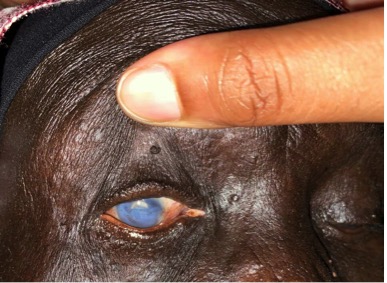
Throughout the many villages we visited, all the doctors noticed the wide spread eye problems the people of Kadugli had. At first it seemed to just be a problem of the eye lens, due to old age, but as more and more patients of different ages were presenting it seemed to be more of an infectious cause, River Blindness (Onchocerciasis) perhaps, that was endemic in the region.
Preventing the illness in the first place by education is equally, if not more important than the treatment itself. Therefore, apart from treating the ill, the medical mission also included health education where part of the group’s job was to educate the people of the village on various topics, including but not limited to, water hygiene safety, water borne diseases (diarrhoea, bilharsiasis), and the importance of immediate fluid replacement and other steps of management. Mother and childhood health was also discussed, as well as endemic goitre due to iodine deficiency, malaria and hemorrhagic fevers. Some of the male medical students also visited a local mosque and soldier camp to further spread the awareness, which was a huge accomplishment.
One thing all the villages shared in common was the hospitality and warm welcoming. When it came to our lunch break the saneyah or tray of food was filled with different varieties of food, including dama’a -stew, mulah, macaroni, meat, salad and much more. After came baobab juice, hot milk, coffee and tea with ibreeks being provided for washing our hands and wudu. They would hurry to provide us with everything before we could even ask. Even the prayer mat was stolen from the men’s area and given to us to ensure we didn’t stand waiting to pray for too long. We were treated so warmly and kindly. If they felt the food was too little or more of us were coming, within seconds, they’d rush to bring more trays of food and reassure us there was plenty for all.
On some days, when we would return back to our accommodation, we would find dozens of patients waiting to be seen. It was during one of those days when I was approached by a mother and her 19-year-old son, who complained that her son had reduced vision since he was born and this was the first time they were seeing a doctor. On examination, it seemed to be a simple squint, which could probably be corrected by the right pair of glasses. It was distressing that the management was so simple and within reach, yet the difficulty in accessing a doctor had made the young boy suffer for 19 years, especially at school, where he had difficulty seeing both far and near objects.
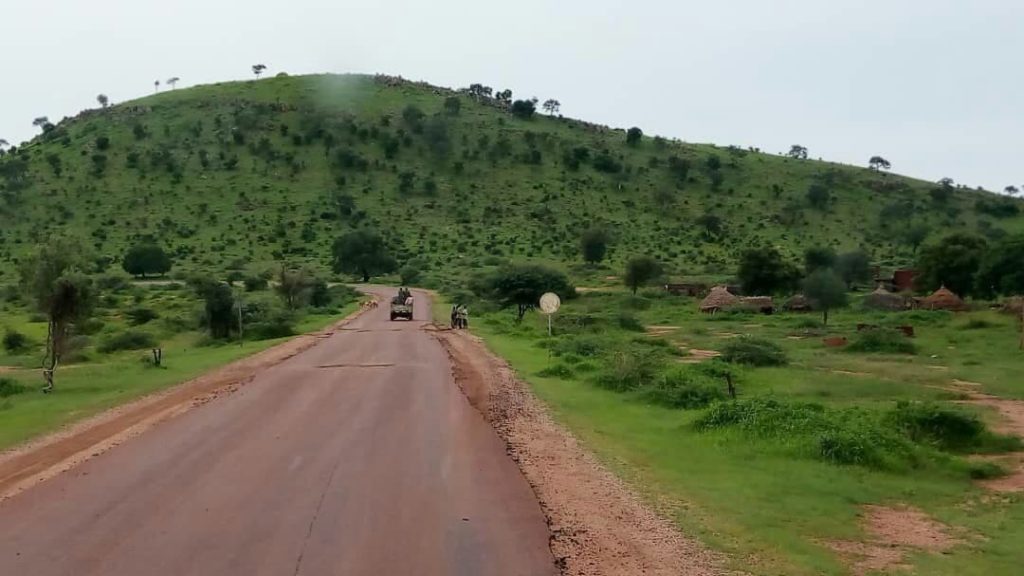
On the fourth day of the medical mission, we headed to Allheimir village, Alburam locality, one of the liberated areas, which are controlled by the Sudan People’s Liberation Movement (SPLMA), and isn’t accessible by the government. Due to the danger of that area in particular, only military vehicles could transport us, unlike in other villages where we entered by bus. It was hard to miss the herd of cows and bulls stomping their way through the vast green fields. A single cowboy owned dozens of cows and bulls. The soldier riding with us told us a single cow cost around about 500,000 sdg whereas a bull cost around 1,000,000 sdg. He said if these livestock were taken to a souq in Khartoum, they would be sold in seconds. He added that even the bride’s dowry was given in the form of bulls and cows, and the number of bulls given depended on how high the bride’s status was. He also pointed out, in a souq that was a few miles away from the village, people sold their products in exchange for animals, which explained why I hadn’t seen any cash money during my trip to the villages. They didn’t deal much with money and everything they ate or drank was either harvested, or came directly from the livestock they owned. On arrival, we noticed many animals taking over the place. It was clear humans and animals here lived in utter harmony and peace. Goats and chickens roamed the area without much noise, as if they themselves were residents of the area.
In addition, upon reaching the village, a soldier who had fought in the war himself, told us it was this area specifically that had seen hundreds and hundreds of deaths. Understandably, it was a neglected area with absolutely no infrastructure whatsoever, so in this case it was the huts that were transformed into labs and pharmacies, whilst clinics were in the open air and greenery of the mountains. What a lovely experience that was! At the very top of one of the many mountains, signs of life were apparent with clothes being hung on lines, and tents visible just within one’s eye field. The soldier told us many of the army had resided on the top of the mountains, so in case any clashes broke out they were ready to defend.
Those working in the lab and pharmacy did a remarkable job working under much pressure trying to fit in all the lab investigations we had requested for the patients and all the prescriptions. With the lack of electricity in most of the villages, generators were carried with us from Khartoum specifically for the microscopes of the lab to ensure nothing stood in the way of our work. The medications and generators were lifted each morning onto the top of the truck just before we left our accommodation and taken down when we reached the village. At the end of the day, after we were done, they were lifted back on top. Hats off to all the medical students who contributed in such a physically exhausting task.
The mayor of the area came and chatted with us for a bit while we were having lunch, and asked us to convey everything that we were seeing in the Nuba Mountains back to the government in Khartoum – the scarcity of clean running water, schools, and other basic necessities. It’s a very primitive and simple life they are living. He told us to tell Prime Minister Abdalla Hamdok that the Nuba Mounatins, with people living and residing there with very little, shouldn’t be forgotten. I held back my tears listening to him.
After a successful day at the village, we packed our equipment, said our farewells, and promised to come back again soon. As the medical mission was sadly coming to an end, the organising committee had organised a trip on the last day to Kalbi waterfall and the heritage area in Kadugli. The waterfall was astonishingly beautiful, and it was hard to believe that places like this existed in Sudan. I had to remind myself every now and then that I was in Sudan, and not Switzerland or any other country in Europe. Sudan is beautiful, and serious consideration should be done to invest in tourism. This could, by far, be one of the most beautiful touristic places to visit in the world. It’s pitiful that war had such a detrimental effect on the area and the thought of even visiting Kadugli may scare the majority. A friend wrote this medical mission made her believe in the lyrics, ‘Wada’a Qawm Seeb Al Khartoum‘, from the famous Sudanese song “Juba” by songwriter AlNour Jeilani. Sudan really has much to offer outside of Khartoum, and with each visit to the different states of Sudan, one becomes more and more convinced of this fact.
After returning to the accommodation, we were greeted by local dancers and singers who gave us a thrilling performance, which included the traditional and ceremonial dance known as The Kambala dance. The day ended with the governor of South Kurdufan paying us a visit and thanking us for what he believed was tremendous work, and was encouraging of more medical missions to the region.
A total of 225 people including students, doctors, medical lab workers, as well as a few of the University of Khartoum guards, took part in this medical mission. A total of 25 villages were covered over four localities Kadugli, Alreef AlSharqi, Habeela, and Alburam with thousands of patients having been seen, treated, and if necessary referred to Soba University Hospital.
We hope this medical mission had an impact on all the people we were able to reach, and those we weren’t able to reach as well. We hope the health education topics were passed on to those who weren’t present to hear it, and that the consultation and medications we offered helped, if not relieved all the pain and worries the patients had. We treated everyone equally and fairly, and gave each patient the time they deserved even when the clinics got very busy, and we were running out of time. I hope we left a mark on everyone we encountered, just like everyone we encountered left a mark on us. I hope the medical missions from the University of Khartoum, Faculty of Medicine can continue to outreach all areas of Sudan especially the most disadvantaged and underprivileged areas. Although the recent revolution, the COVID-19 pandemic and the country’s unstable economic state made us lose hope that medical missions may no longer be able to take place, I believe this medical mission reinstalled that hope within us.
To the organising committee, who have been working day and night on this medical mission for the past three years, to Khaltu Samia, and the women working with her, who would provide us with a daily food tray after coming back from a long day at the village, to the army men who kept us safe during the whole trip, and to many others who played a role in supporting and easing this medical mission, thank you for making Kadugli our home away from home.
To the children of the Nuba mountains, you never chose to be born into a war zone, and no child should ever witness the harsh reality of the war, but life has its doors wide opened for you, and we’ll take it upon ourselves as a nation to ensure these doors are kept open.
To the people of the Nuba Mountains, thank you for showing us the true meaning of resilience, and thank you for making us better humans by teaching us the importance of humility, gratitude and acceptance. We’re not the same people before and after our trip to your land. To all those who participated in the medical mission, thankyou! We’re one big family now and we’ll always have Kadugli’s memories to tie us together.
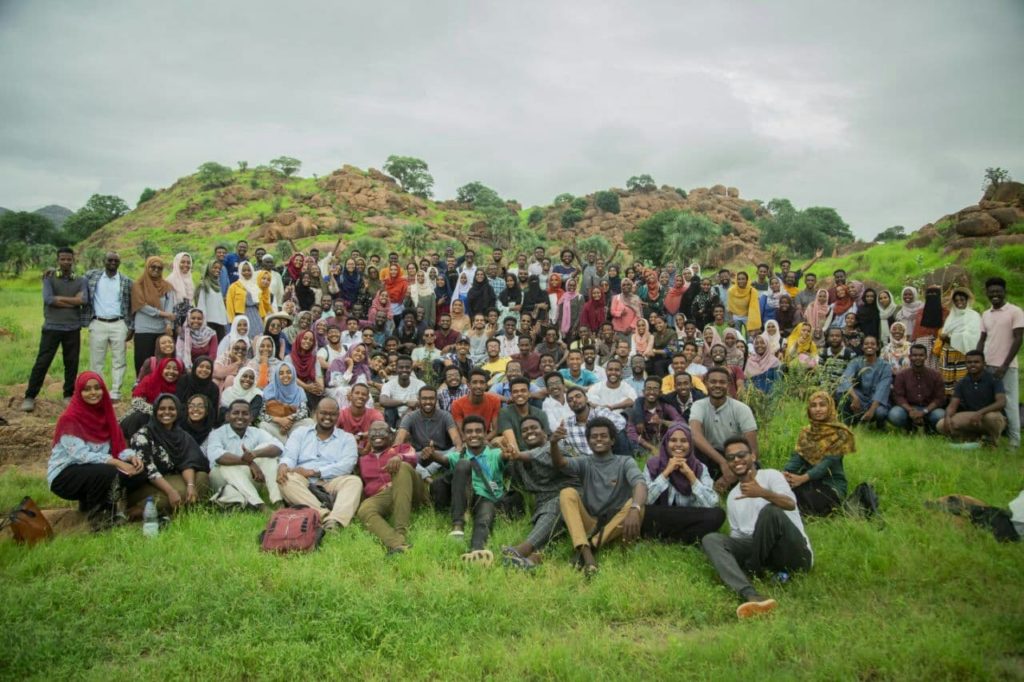
Lastly, but certainly not least, to Mohammed Abbas Babiker, thank you for showing us what it truly means to be a dedicated and loving doctor and senior, always striving to improve the life of all those around him. This medical mission was done in his loving memory, a young recent graduate of the University of Khartoum Faculty of Medicine, who sadly passed away on 9 July 2021. Just as exceptional as he was, so was the medical mission carried out in his name. It left a long lasting effect on everyone who participated in it, and will definitely go down as one of the most successful medical missions of our time.
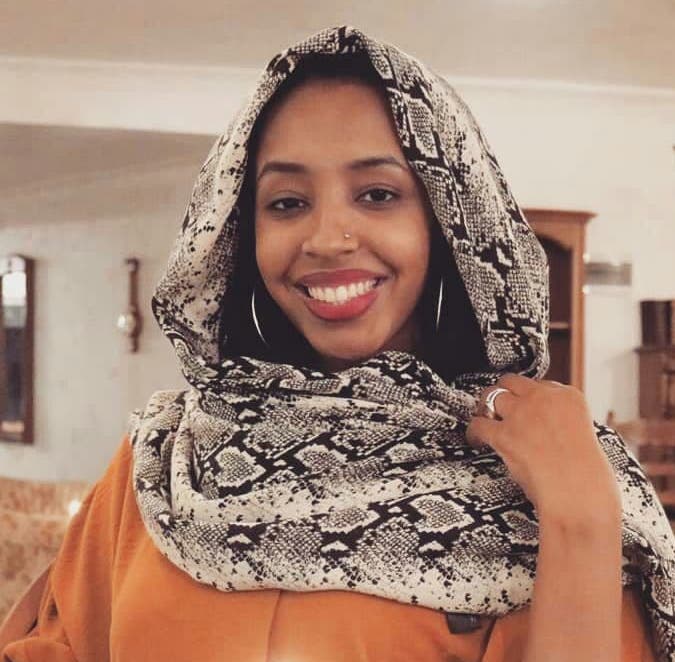
Saria Osman El-Amin is a 25-year-old medical doctor who graduated in 2018 from the University of Khartoum, Faculty of Medicine and is currently based in Sudan. Saria is passionate about journalism, and loves to write, especially about topics related to health matters, where she tries to amplify the voices of the unheard. Through these articles, she has been interviewed on international TV news channels. Saria aspires to be a Consultant Physician in Infectious Diseases to help in the fight against the neglected diseases her country people suffer so terribly from.

